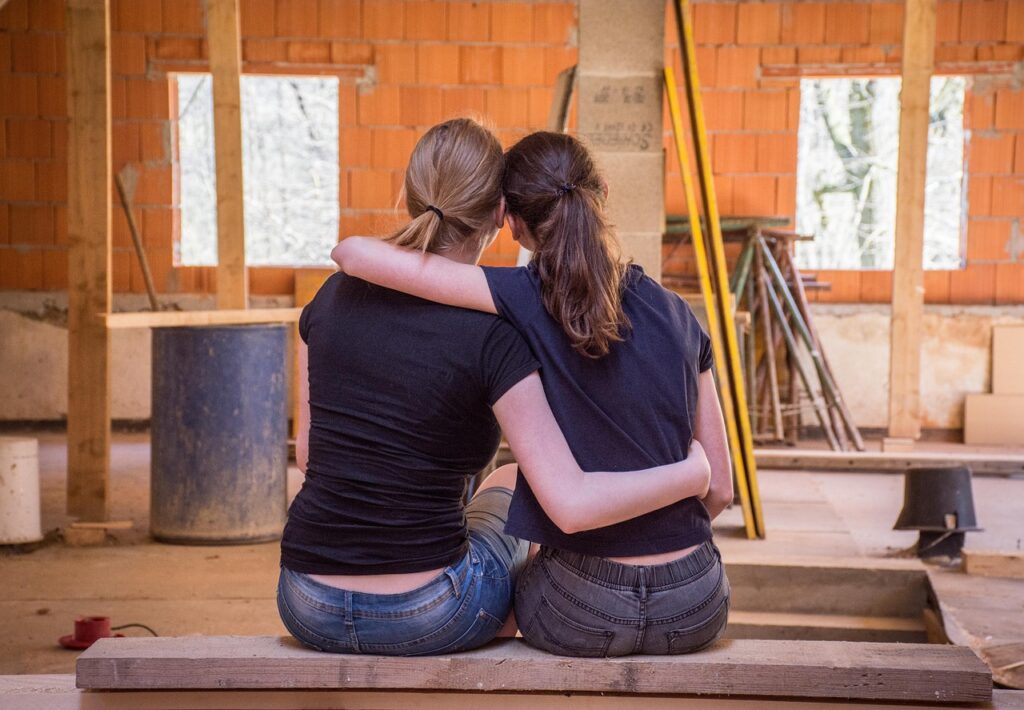Vulnerability in relationships is akin to peeling back the layers of an onion. It reveals the core of who we truly are, allowing our partners to see the real, unfiltered versions of ourselves. But why does the thought of being vulnerable with someone we love feel like standing on the edge of a cliff? The answer lies in the complexity and beauty of human connections. Vulnerability is not just about showing our weaknesses; it’s about showing our true strength and courage. It involves the ability to openly express your needs and preferences, reveal your emotions honestly, and set and maintain healthy boundaries.

Liza Gold, a licensed clinical social worker, highlights that vulnerability includes actions such as asking your partner for a hug, apologizing for a mistake, requesting a phone-free dinner, or disclosing something that makes you feel insecure. These actions, though seemingly small, are monumental steps in deepening the bond with your partner. But why is it so challenging to be this open, especially with men or romantic partners? The fear of vulnerability often stems from societal teachings that equate it with weakness. Many of us grow up in environments where expressing our true feelings was discouraged or even unsafe.
This reluctance to be vulnerable can significantly impact our relationships.
Dr. Timothy Yen explains that vulnerability is essential for intimacy. He interprets intimacy as ‘into-me-see,’ a profound way for partners to connect truly and accept each other wholly. The benefits of being vulnerable are vast, including building trust, resolving conflicts, and affirming self-esteem. Yet, despite these advantages, taking the first step towards vulnerability can be daunting.
To navigate the complexities of opening up, it’s vital to start small.
Sharing something insignificant to gauge your partner’s reaction can be a safe way to build trust over time. Dr. Yen reminds us that ‘love is given freely; trust is earned.’ This approach allows for a gradual, more comfortable transition into deeper conversations. Writing down your thoughts or using ‘I’ statements can further ease the process by preventing defensive reactions. Setting a time limit for sharing and listening can also create a structured, safe space for both partners.
However, when the challenges seem insurmountable, reaching out to a therapist can provide an invaluable resource.
Therapy offers a corrective emotional experience, helping individuals and couples navigate their vulnerabilities with professional guidance. Couples therapy, in particular, can offer a mediated space for both partners to speak openly and honestly. Yet, it’s crucial to recognize what vulnerability is not. It is not a manipulation tactic or a means to an end. True vulnerability is about genuine expression and connection, not about seeking validation or trying to elicit a specific response from your partner. Similarly, emotional vomit – the act of unloading an overwhelming amount of personal history onto someone – is not true vulnerability. While it may seem like an open expression, it often stems from a place of neediness and can be counterproductive.
Embracing vulnerability in relationships is a journey of courage and self-discovery.
It’s about finding the strength to let someone see you as you truly are, with all your imperfections and insecurities. This path may not always be easy, but it is unquestionably worth it for the depth and authenticity it brings to our connections.
Let’s embark on a journey together to explore practical steps toward embracing vulnerability with your partner. It’s akin to unlocking a treasure chest filled with the rich rewards of deeper connections and understanding. The transformation begins with acknowledging our fears and the many emotions that accompany the thought of being truly open with someone we love. This recognition is the first step on a path filled with discovery, growth, and ultimately, a more fulfilling relationship.

Starting small is a mantra worth adopting when navigating the terrains of vulnerability.
It’s an approach that encourages taking baby steps, sharing little snippets of ourselves to test the waters. Imagine casually mentioning a mild concern over dinner or sharing a funny childhood story that reveals a bit of your quirks. These moments, though seemingly insignificant, are the building blocks of trust and intimacy. They are the first few bricks laid down on the foundation of a relationship where vulnerability is welcomed with open arms.
The practice of writing down your thoughts can be a powerful tool in this journey. It’s about putting pen to paper (or fingers to keyboard) and letting your innermost thoughts flow freely. This act of expression is not just about unloading your emotions but about reflecting on them, understanding them, and then sharing them with your partner in a way that’s comprehensible and heartfelt. Reading these thoughts aloud to your partner can be a transformative experience, bridging gaps and healing wounds with the salve of sincerity and care.
Equally important is the art of communication through ‘I’ statements.
This method, simple yet profound, allows us to convey our feelings without casting blame or causing defensiveness. Saying, ‘I feel insecure when…’ instead of ‘You make me feel insecure when…’ shifts the focus from accusation to expression, opening a door to empathy and understanding. It’s a gentle yet effective way of letting your partner see the world through your eyes, feeling what you feel, and walking a mile in your shoes.
Setting a time limit for sharing and responding can also foster a safe and respectful environment for vulnerability.
It ensures that both partners have the space and opportunity to express themselves fully without fear of being overshadowed or unheard. This structured approach to sharing can alleviate the pressure and make the act of opening up less daunting. It’s like setting the stage for a play where both actors have equal parts, and the script is written with the ink of honesty and love.
Reaching out to a therapist for guidance can be a pivotal step in this journey. Therapy offers a neutral ground, a sanctuary where fears and inhibitions can be addressed without judgment. It’s a space where couples can learn to navigate their vulnerabilities with the help of a professional who can offer insights, tools, and strategies tailored to their unique relationship dynamics. Whether it’s through individual sessions that prepare one for shared vulnerability or couples therapy that facilitates open communication, the support of a therapist can be invaluable.
Embracing vulnerability with your partner is akin to embarking on a grand adventure. It is a journey filled with challenges and rewards, fears and triumphs. It demands bravery, patience, and a readiness to step outside one’s comfort zone. The destination—a deeper, more authentic connection with your partner—is undeniably worth the journey. Take that first step, embrace the vulnerability, and witness your relationship flourishing into something genuinely beautiful and profound.
Related posts:
Tips to Being Vulnerable with a Man
Vulnerability: The Key to Better Relationships





